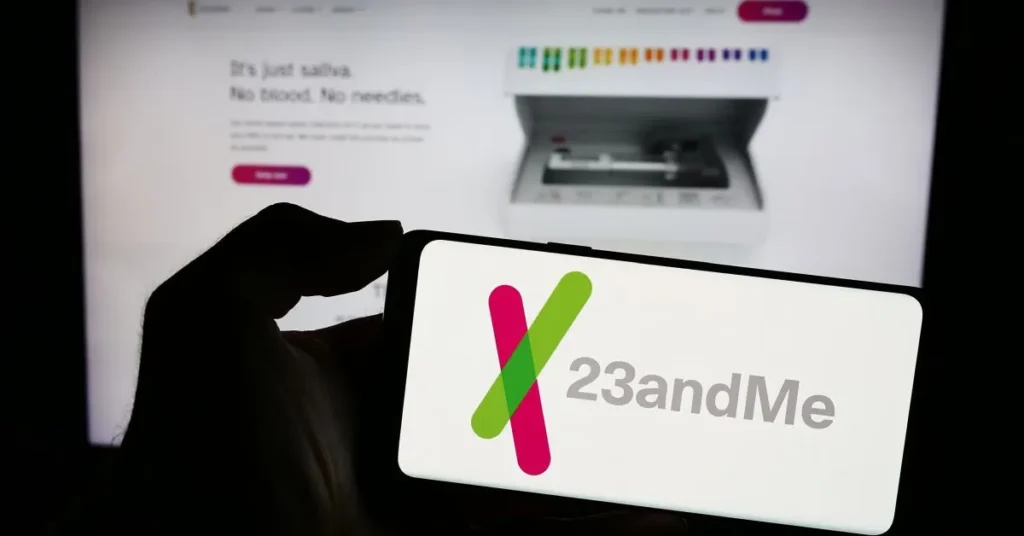23andMe, a popular personal genomics and biotechnology company, has faced significant legal and regulatory challenges over the years. The company’s direct-to-consumer genetic testing services, which offer insights into ancestry, genetic predispositions to diseases, and more, have made it a household name.
However, it wasn’t always smooth sailing for 23andMe. This article explores why 23andMe was banned and the controversies that led to this significant regulatory action.
The Rise of 23andMe
23andMe was founded in 2006, and it quickly gained popularity for offering affordable genetic testing kits that allowed individuals to learn more about their DNA. Users could easily order a kit online, provide a saliva sample, and receive detailed reports about their genetic makeup, health risks, and ancestry.
DNA testing is not banned in Israel and that is just such a bonkers thing to assert. You can’t buy an OTC genetic test w/o an RX or court order but you can buy them online. 23&Me is restricted by lots of countries but ships to Israel. 1/ https://t.co/NVotwnhtZl
— Alex Leo (@AlexMLeo) January 2, 2024
The concept was revolutionary, bringing genetic testing into the mainstream and providing consumers with unprecedented access to their genetic information.
The Regulatory Concerns
Despite its popularity, 23andMe’s rise was met with growing concern from regulatory bodies, particularly the U.S. Food and Drug Administration (FDA). The FDA’s primary concern was related to the health-related information provided by 23andMe.
The company’s reports included details about genetic risks for conditions such as breast cancer, Alzheimer’s disease, and cardiovascular issues. The FDA argued that these reports could potentially cause harm if misinterpreted by consumers without proper medical guidance.
The FDA’s Warning and Subsequent Ban
In 2013, the FDA issued a warning letter to 23andMe, ordering the company to stop marketing its health-related genetic tests. The FDA’s main contention was that 23andMe had failed to provide sufficient evidence to support the accuracy and reliability of its tests.
Furthermore, the FDA was concerned that consumers might make important health decisions based on the results, which could lead to harmful outcomes.
The FDA’s warning was not immediately heeded by 23andMe, leading to the agency’s decision to ban the sale of the company’s health-related genetic testing services.
This ban was a significant blow to 23andMe, forcing the company to remove health-related information from its reports and focus solely on ancestry and raw genetic data until further notice.
This is why DNA ancestry tests are illegal in Turkey. https://t.co/GFo3E8AcZo
— Serj Tankian-#SanctionAzerbaijan (@serjtankian) September 22, 2023
The Impact of the Ban
The ban had a profound impact on 23andMe’s operations. The company had to quickly pivot its business model, focusing on the aspects of its service that remained compliant with regulatory requirements. This period was marked by uncertainty, both for the company and for consumers who had come to rely on its health-related genetic insights.
Despite these challenges, 23andMe remained committed to its mission. The company worked closely with the FDA to address the agency’s concerns, eventually gaining approval to resume providing health-related genetic testing services, albeit with more rigorous data and clearer disclaimers.
The Road to Recovery and Reapproval
After extensive collaboration with the FDA, 23andMe was approved in 2015 to resume providing some health-related reports, specifically those related to carrier status for certain genetic conditions.
Over time, the company continued to work with the FDA to expand the range of health-related information it could legally offer. By 2017, 23andMe had regained much of its former market share and was once again offering a comprehensive suite of genetic tests, now with FDA approval.
Lessons Learned from the 23andMe Ban
The 23andMe ban serves as a crucial case study of the importance of regulatory oversight in the rapidly advancing field of personal genomics. It highlights the need for companies to provide clear, accurate, and reliable information to consumers, especially when it comes to health-related data.
Read more: How and When to Find the Best Deals on Amazon: A Comprehensive Guide
Additionally, it underscores the role of regulatory bodies like the FDA in protecting public health by ensuring that new technologies are both safe and effective.
Conclusion
The ban on 23andMe’s health-related genetic testing services was a pivotal moment in the company’s history. While it posed significant challenges, it also led to a stronger, more compliant company that continues to innovate in the field of personal genomics.
Today, 23andMe is a leader in the industry, offering a range of services that are both informative and safe, with the backing of rigorous scientific validation and regulatory approval.
